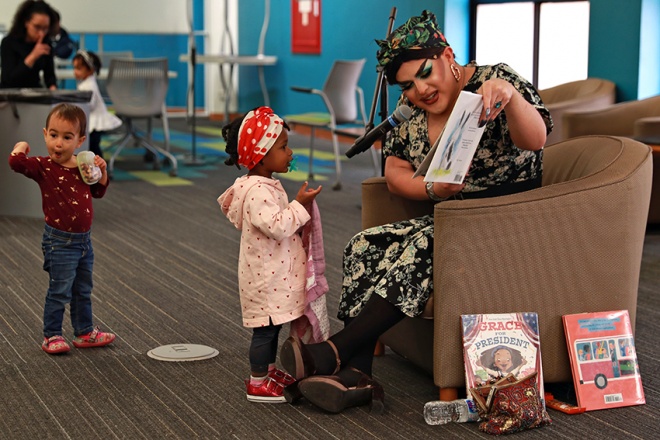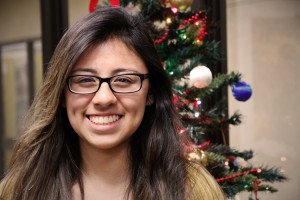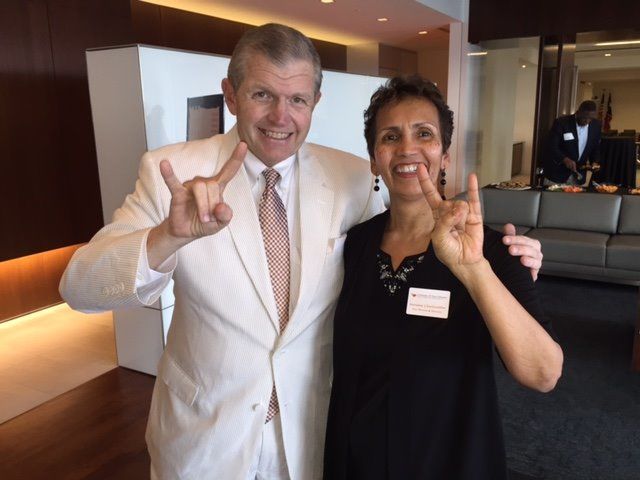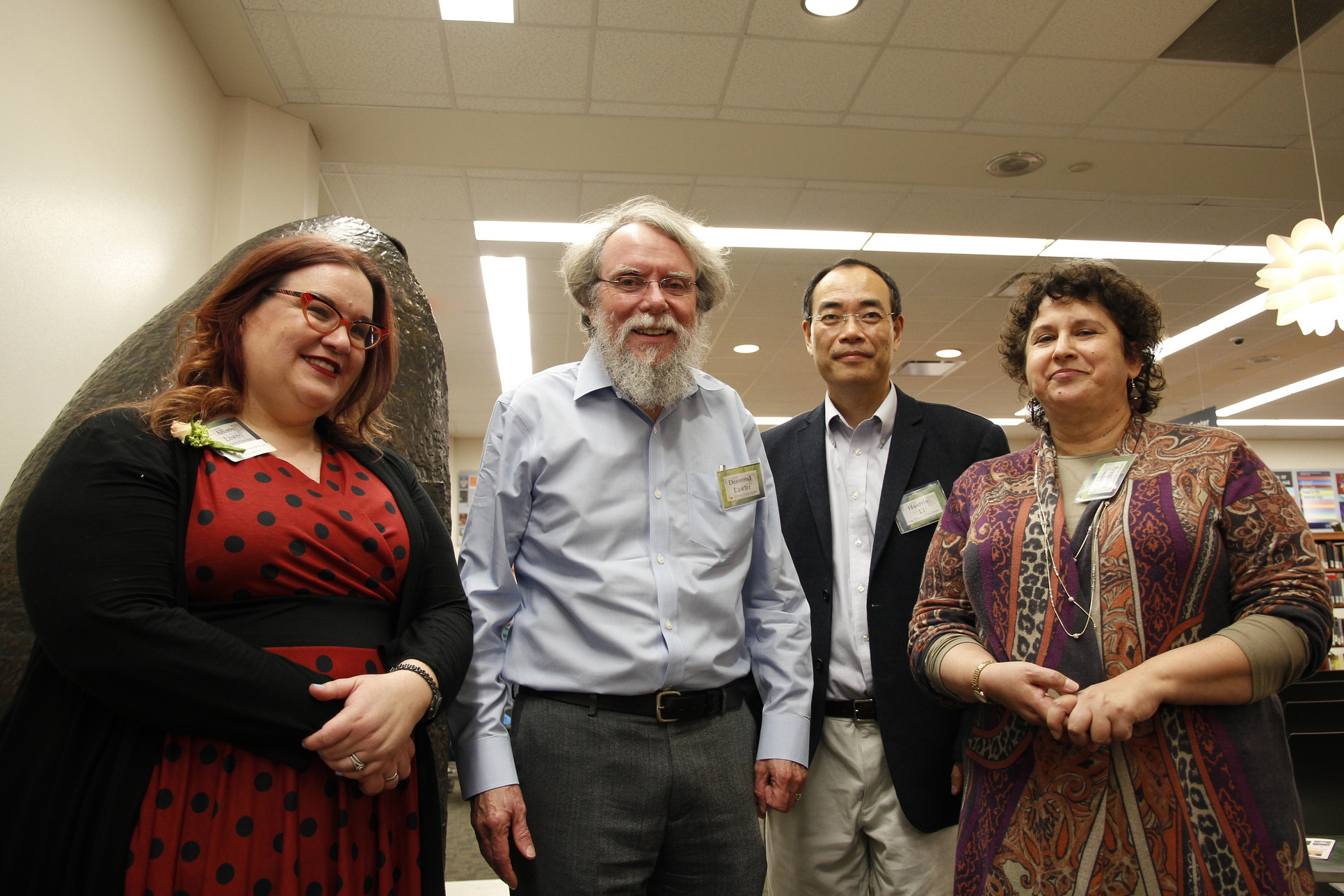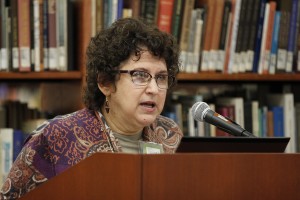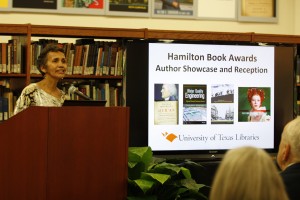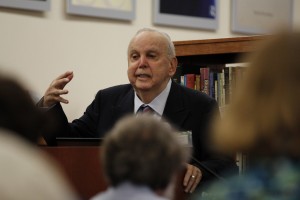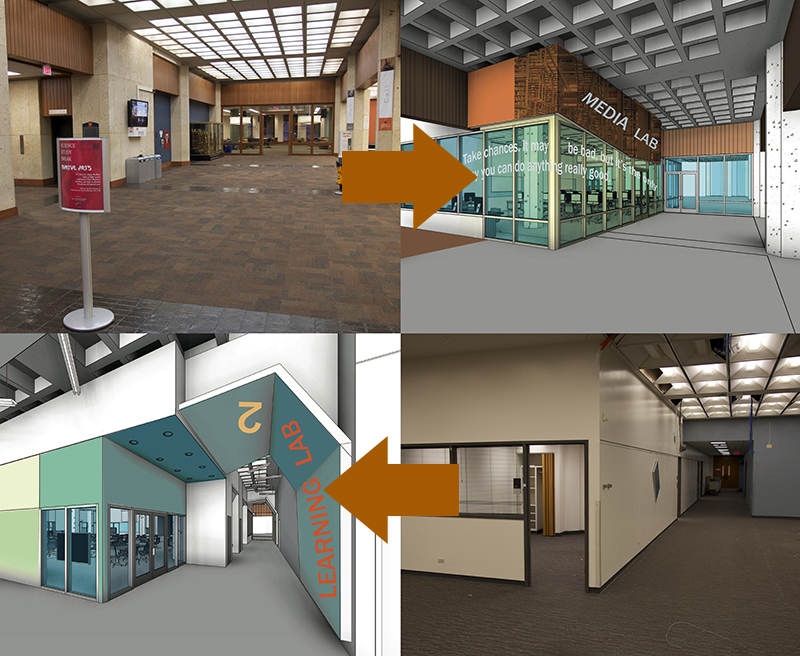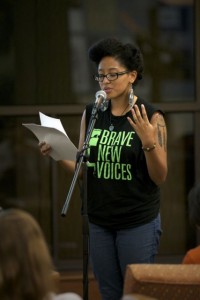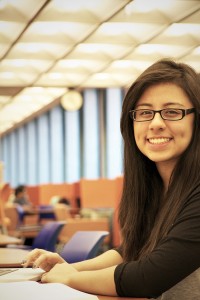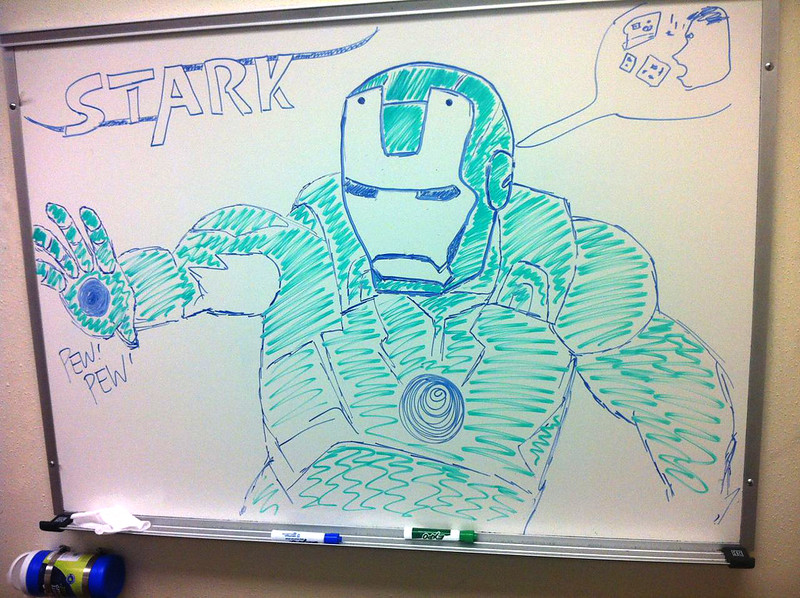Read, hot & digitized: Librarians and the digital scholarship they love — In this series, librarians from UTL’s Arts, Humanities and Global Studies Engagement Team briefly present, explore and critique existing examples of digital scholarship. Our hope is that these monthly reviews will inspire critical reflection of and future creative contributions to the growing fields of digital scholarship.
David Foster Wallace’s Infinite Jest is considered, by some, a masterpiece of late 20th century American literature. The Harry Ransom Center’s acquisition of Wallace’s personal papers in 2010 gave his work a higher profile among scholars[1], and “Wallace Studies” has emerged as a sub-discipline.[2] Curiously, his writings inspire an obsessive fan base that resembles the enthusiasm and devotion found at sci-fi cons rather than serious literary study.[3] (Wallace had his own obsessions with television and “low-brow” pop culture, and perhaps he would find his fandom amusing.)[4]
I started reading Infinite Jest while I was living in Boston, and I was struck by the novel’s sense of place. Wallace set the novel in a dystopic future where the United States has merged with Mexico and Canada to form the Organized North American Nations. Despite this setting, Bostonians will quickly recognize places in the novel because Wallace reimagines the city in excruciating detail. Critic Bill Lattanzi suggests Wallace was mirroring James Joyce’s painstaking recreation of Dublin in Ulysses. But Lattanzi recognizes what many readers familiar with Boston understand about the novel: There is a distortion of the city in Infinite Jest. It’s not Boston, or even the United States, as we know it. [5]
In this context, I chose to evaluate the Infinite Atlas, an interactive, crowd-sourced mapping project that geo-locates references in Infinite Jest. William Beutler, a communications consultant, created the Infinite Atlas and the travel blog Infinite Boston in 2012. The site’s “About” section describes it as “an independent research and art project.”[6]
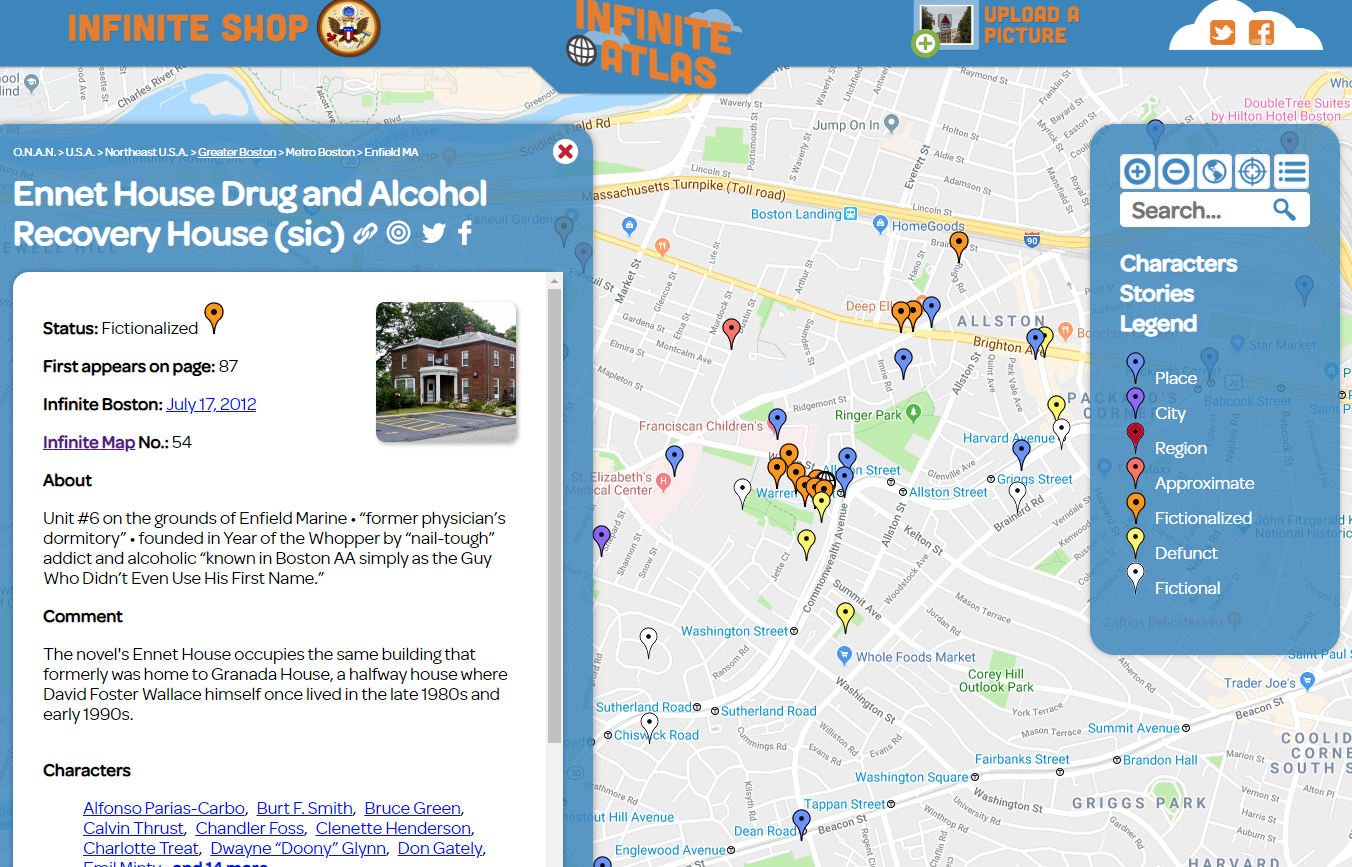
The Infinite Atlas is built on Google Maps, with design work by the firm JESS3 and programming from the web development company Red Edge. (It’s unclear if Beutler paid for the design and programming.) Beutler credits his friends and family for helping him with data collection, which included going through all 1,000+ pages of Infinite Jest one-by-one. The project also allows users to create their own locations and upload photos and descriptions, so the Atlas has expanded beyond the Boston area.
What can academic institutions take away from this project? What strikes me is the dedication, love, and passion Beutler and his friends brought to it, and their continued maintenance of the Infinite Atlas. Maintenance of digital projects is an ongoing issue for academic institutions and libraries, which can’t afford trendy design firms. However, we can learn from the Infinite Atlas team’s dedication. We should choose projects that we are passionate about, ones that we will care for and attend to in the future, much in the same way we care for our physical book collections.
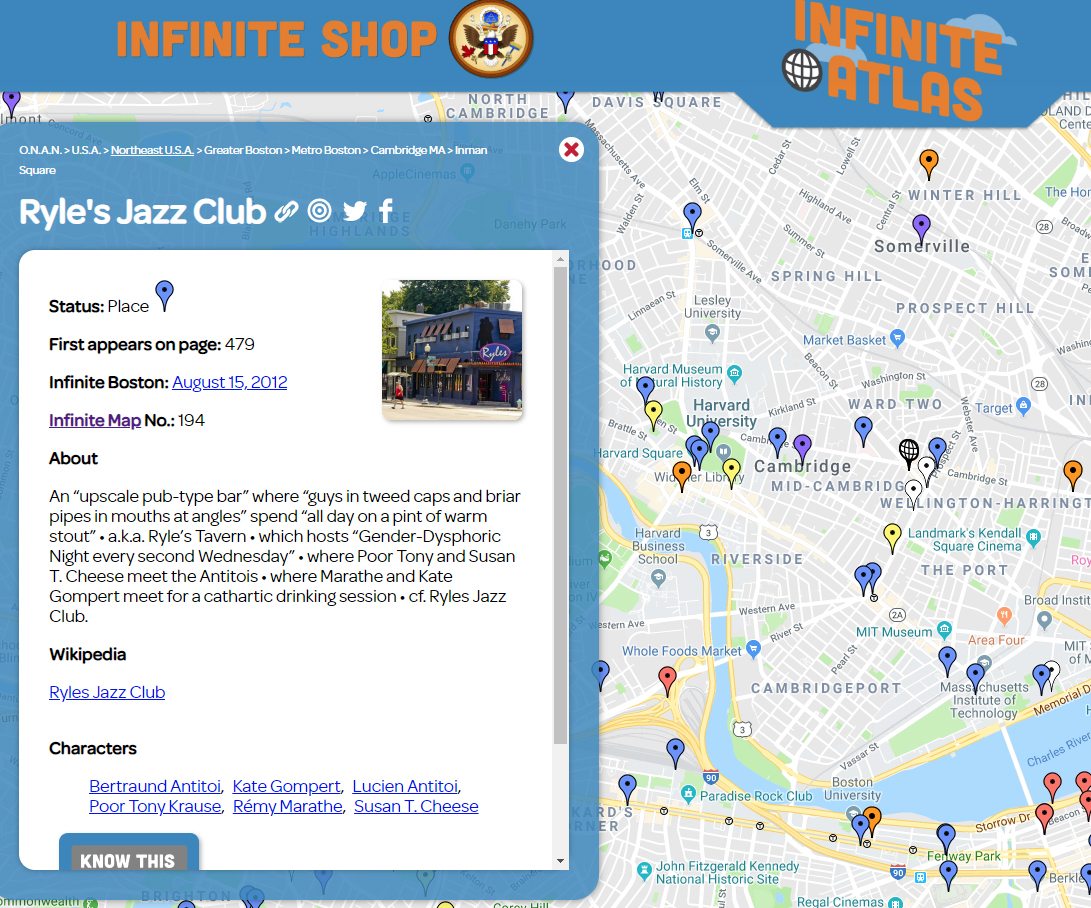
This project also has interesting implications for scholars. Infinite Jest is a very difficult book. It is long, convoluted, and full of footnotes. It requires stamina of its readers. If the novel is, as Lattanzi suggests, a fragmentation of Wallace’s experiences in Boston, it is logical that fans would try to make sense of that. Beutler told Fast Company in 2015, “I re-read Infinite Jest after Wallace’s passing, and became obsessed with the idea that there was a way to treat Infinite Jest as a very large data set.”[7] The Infinite Atlas is an attempt to better understand this novel through data, and that is one of digital humanities’ primary goals. Furthermore, the Infinite Atlas could be an object of study unto itself. It is, in a way, a primary source potentially useful for scholars interested in reader response to Wallace’s work. In the universe of digital projects, a non-academic work like the Infinite Atlas is an intriguing example because it challenges our notions of scholarship and leads us to other potentially better questions.[8]
You can find editions of David Foster Wallace’s fiction and non-fiction, including Infinite Jest, at the PCL, where you can also find critical and scholarly works on Wallace’s writing.
[1] Meredith Blake, “What’s in the David Foster Wallace Archive?” The New Yorker, March 9, 2010, https://www.newyorker.com/books/page-turner/whats-in-the-david-foster-wallace-archive
[2] See the Preface to Boswell and Burns’s 2013 book Companion to David Foster Wallace Studies for a brief history of Wallace Studies: http://catalog.lib.utexas.edu/record=b8828072~S29
[3] See fan sites like the Infinite Jest Wiki: https://infinitejest.fandom.com/wiki/David_Foster_Wallace and the Uncyclopedia: http://uncyclopedia.wikia.com/wiki/David_Foster_Wallace And then there’s this particularly, er, challenging essay by Mike Miley in The Smart Set magazine from 2014: https://thesmartset.com/article08181401/
[4] See Wallace’s famous essay “E Unibus Pluram: Television and U.S. Fiction” in his 1997 book A Supposedly Fun Thing I’ll Never Do Again for Wallace’s examination of his own fraught relationship with television: http://catalog.lib.utexas.edu/record=b4267999~S29
[5] Bill Lattanzi, “Messing with Maps: Walking David Foster Wallace’s Boston,” Los Angeles Review of Books, February 6, 2016, https://lareviewofbooks.org/article/messing-maps-walking-david-foster-wallaces-boston#!
[6] “About Infinite Atlas,” Infinite Atlas, accessed February 7, 2019. http://infiniteatlas.com/about
[7] Teressa Iezzi, “Infinite Atlas: A Location-Based Visualization Of A Literary Masterpiece,” Fast Company, January 26, 2015, https://www.fastcompany.com/1681555/infinite-atlas-a-location-based-visualization-of-a-literary-masterpiece
[8] No discussion of Infinite Jest would be complete without its own set of self-aware footnotes.


